Image

Gene Alexander
Brain function and structure in cognitive aging and neurodegenerative disease
Image

John Allen
Human psychophysiology: emotion, cognition, memory and amnesia
Image

Trent Anderson
Study the pathophysiology & interface between traumatic brain injury, pain and migraine; utilize cutting edge approaches including electrical & optophysiology, neural imaging, neural circuit interrogation and respondent and operant behavior.
Image

Jessica Andrews-Hanna
Neural underpinnings of internally-guided cognition, including how they develop and change across the lifespan and how they become dysfunctional in clinical populations; functional MRI; default mode network
Image

E. Fiona Bailey
Voluntary and respiratory-related neuromuscular control of upper airway muscles
Image

Shaowen Bao
Sound processing in the healthy and diseased brain
Image

Carol Barnes
Neurobiological correlates of age-related declines in spatial cognition
Image
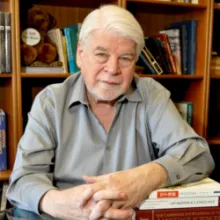
Thomas Bever
Interactions of cognition and neurology in humans and animals
Image
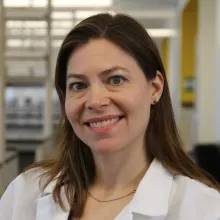
Martha Bhattacharya
The Bhattacharya Lab studies the molecular pathways that promote axon degeneration in the context of neuronal injury and neurodegenerative disease, using both Drosophila and mouse models
Image

James Bibb
We study neuronal signaling mechanisms that integrate fast and slow neurotransmission relevant to numerous neurological and neuropsychiatric disorders using innovative multidisciplinary approaches.
Image

Roberta Brinton
Systems biology of aging transitions leading to risk of age-related neurodegenerative diseases, sex differences in bioenergetic aging of female and male brain, regenerative therapeutics for neurodegenerative diseases
Image

Ross Buchan
From yeast to neurons - insights into ALS proteostasis
Image

Image
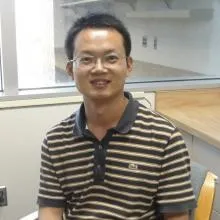
Haijiang Cai
Neural circuits of animal behaviors, with a focus on understanding how the neural circuits regulate feeding and emotional behaviors, using optogenetics, pharmacogenetics, electrophysiology, molecular, and behavior analysis tools
Image

Ying-hui Chou
Developing image-guided transcranial magnetic stimulation (TMS) approaches to improve cognitive functions and identifying TMS-derived and imaging-based biomarkers for diagnosis and prediction of therapeutic outcomes in individuals
Image
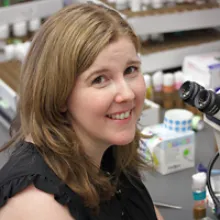
Megan Corty
How and why glia wrap axons
Image
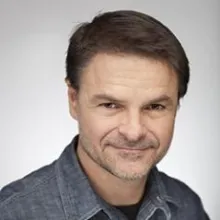
Stephen Cowen
Understanding how the activities of ensembles of neurons drive our capacity to decide, remember, and navigate
Image

Thomas Davis
The delivery of neuropharmaceuticals across the Blood Brain Barrier
Image
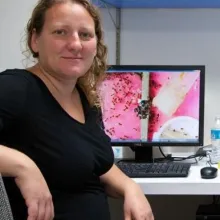
Anna Dornhaus
The emergence of complexity and increased efficiency through collective behavior; effect of scaling in complex systems; the role of learning and individual variability for collective success
Image

Kristian Doyle
The role of the immune system in chronic neurodegeneration after stroke and brain injury
Image

Erika Eggers
How inhibitory inputs influence neuronal signaling and sensory signal processing in the retina
Image

Arne Ekstrom
Work focuses on the neural basis of human memory, with a particular interest in spatial navigation
Image

Torsten Falk
Cellular and rodent models to test novel pharmacological treatments for levodopa-induced dyskinesias, a major side effect of Parkinson’s disease treatment, as well as new neuroprotective gene and drug therapy approaches to Parkinson’s disease
Image

Fabian-Xosé Fernandez
Identifying circadian factors during middle age that increase risk for later-life cognitive impairment; devloping novel, light-based treatments to stem loss of cognition during aging
Image

Ralph Fregosi
Regulation of Breathing
Image

Andrew Fuglevand
Sensorimotor neurophysiology
Image
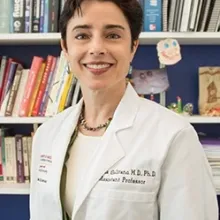
Amelia Gallitano
The mechanism by which immediate early genes mediate the effect of environment on behavior, memory, synaptic plasticity, and the risk for mental illness
Image
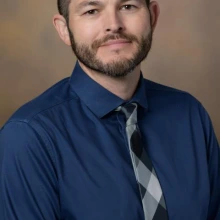
Paul Gignac
Develops and deploys advanced 3D imaging techniques to investigate the evolution of the avian brain with a particular focus on multisensory integration in the cerebellum.
Image

Katalin Gothard
The neural basis of emotion and social behavior
Image
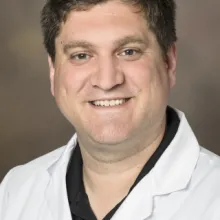
Michael Grandner
The role of insufficient sleep in the development of cardiometabolic disease and neurocognitive dysfunction; social/behavioral/environmental determinants of sleep; and behavioral interventions for insufficient sleep
Image
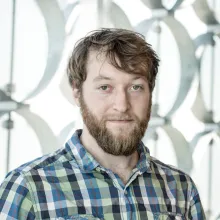
Philipp Gutruf
Wireless and battery free devices that intimately integrate with biological systems by combining innovations in soft materials photonics and electronics
Image

Lindsay Halladay
We use a multiplexed approach to understand how neural dynamics produce behavior with a focus on aversive learning, social behavior, and long-term effects of exposure to early life stress
Image
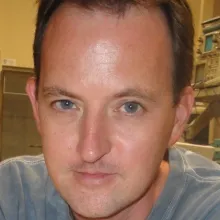
Charles Higgins
Computational neuroscience, biologically-inspired engineering
Image

Ashley Huggins
Neurobiology of PTSD and fear learning/memory
Image
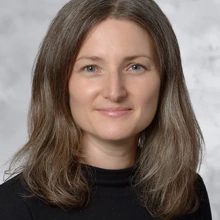
Elizabeth Hutchinson
Advanced diffusion MRI markers of brain pathology in aging and degenerative disorders
Image

Maya Kaelberer
The gut brain connection
Image

Carol Kopruszinski
Preclinical studies that increase the understanding of the neurobiology of migraine, headache, and craniofacial pain disorders, with a focus on identifying novel mechanisms and molecular targets for potential future clinical trials
Image

Anita Koshy
Understanding the molecular mechanisms that allow a common intracellular parasite, Toxoplasma gondii, to persist in the mammalian CNS
Image

Richard Lane
Functional neuroanatomy of emotion and emotion regulation in normative and clinical contexts
Image

Tally Largent-Milnes
The opioid and chronic pain epidemics go hand in hand; my lab investigates the intersection between the physiology of chronic pain states, analgesic pharmacology, and overcoming the gatekeeper of CNS pharmacology- the blood brain barrier
Image

Kevin Lin
Nonlinear dynamics of neurons and networks of neurons, data assimilation & data-driven modeling, computational neuroscience.
Image

Lalitha Madhavan
Stem Cell Biology, Aging, and Neurodegeneration
Image

Laurent Martin
The intersection of neurodegeneration and pain management, aiming to understand how neurodegenerative diseases impact sensory processing; to develop non-pharmacological therapies that slow progression of these conditions while enhancing pain management
Image

Aaron McGee
The lab studies developing visual circuitry to understand how to modulate neural plasticity for therapeutic gain in neurodevelopment and neurodegenerative disorders
Image

Julie Miller
Neurogenetic mechanisms underlying normal and abnormal vocal communication
Image

Helena Morrison
Mechanisms of brain injury during ischemic stroke, with emphasis on neuroinflammation, microglia function, and sex differences in acute and chronic stroke outcomes
Image

Janko Nikolich-Zugich
The biology of cytotoxic T lymphocytes (CTL) in health, infection and aging
Image

Julie Pilitsis
Neuromodulation advancements including robotics, focused ultrasound and machine learning to improve patient experience
Image
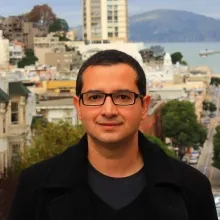
Paulo Pires
The long-term goal of our research is to find new targets for therapies to improve quality of life of patients with chronic diseases that lead to dementia
Image
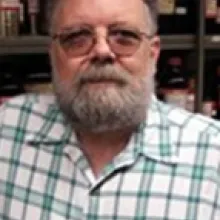
Robin Polt
New Methods for Organic Synthesis
Image

Frank Porreca
Central autonomic regulation; opioids
Image

Linda Restifo
Genetics of brain development and neuronal plasticity; genetics of mental retardation; drug discovery for developmental brain disorders
Image

Kevin Rhine
RNA biology dysfunction and protein aggregation in aged human neurons
Image

Arthur Riegel
Synaptic dysfunction in neurological and psychiatric disorders related to addiction, pain and stress
Image

Kathleen Rodgers
Evaluating the ability of angiotensin peptides and small molecule Mas agonists to mitigate injury and regenerate injured tissues and product development
Image

Patrick Ronaldson
Targeting transporters for blood-brain barrier protection and for delivery of neuroprotective drugs in cerebral hypoxia/ischemia
Image

Lee Ryan
Neural basis of memory, age-related changes in memory, and how these changes relate to brain functioning
Image

Rita Sattler
Studies of molecular mechanisms of neurodegeneration (ALS, FTD, and others) using patient-derived induced pluripotent stem (iPS) cells
Image

Todd Schlenke
The genetic basis of behavioral immunity in fruit flies
Image

Rick Schnellmann
Identifying and developing drugs to treat stroke, spinal cord injury and Parkinson’s disease
Image

Isabelle Schrauwen
Multi-Omics Approaches in Neurodevelopmental and Sensory Disorders
Image

Jacob Schwartz
RNA-binding proteins involved in the pathogenesis of amyotrophic lateral sclerosis (ALS)
Image

Scott Sherman
Development of viral vectors designed to modify the expression of voltage-gated channels in brain
Image

Shang Song
Designing novel multimodal neuromodulation approaches (e.g. biomaterials, stem cells, electrical stimulation) to treat neurological disorders and building organ-on-chip models to understand brain-related diseases
Image
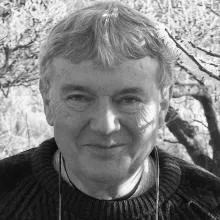
Nicholas Strausfeld
Visual system neurobiology, learning and memory, brain evolution, nervous system database
Image

John Streicher
Studies the molecular mechanisms of opiod receptor signal transduction, with a goal of using these mechanisms to create novel drug discovery strategies that reduce the side effects of current opiod drugs
Image

George Sutphin
The Sutphin Lab uses tools in systems and comparative genetics to understand the molecular basis of aging and neurodegeneration
Image

Ee Phie Tan
Targeting lipid droplet to treat neurodegeneration and age-related diseases
Image

Ilknur Telkes
Exploring neural signatures of chronic pain to develop objective pain assessments tools, advance neuromodulation therapies (e.g., spinal cord stimulation, deep brain stimulation), and engineer new technologies to improve patients’ lives
Image

Jennifer Teske
Neural and behavioral mechanisms of sleep deprivation-induced obesity
Image
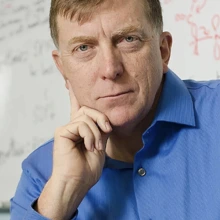
Image

Todd Vanderah
Understanding the neural-mediated mechanism underlying opioid tolerance and opioid-induced pain
Image

Xinglong Wang
Causes, treatments, and diagnosis of Alzheimer's and other neurodegenerative diseases
Image

Melissa Warden
Neuromodulation and neural circuits of motivated behavior
Image

Craig Weinkauf
Cerebrovascular contributions to aging and dementia
Image

Jean Wilson
Cell biology of epithelial tissues; Regulation of membrane trafficking in polarized and non-polarized cells
Image

Russell Witte
Novel imaging of the central nervous system; smart contrast agents
Image

Melville Wohlgemuth
Sensing and action in the natural environment
Image

Ebenezer Yamoah
We seek to understand hearing mechanisms at the cellular, molecular, and genetic levels, as well as biochemical and physiological approaches. Additionally, we aim to identify the longitudinal changes that lead to hearing loss as we age and find strategies
Image

Fei Yin
Mitochondrial genotype and phenotype in brain aging and age-associated neurodegenerative diseases
Image

Haining Zhu
RNA binding proteins and RNA metabolism including protein translation and stress granules under physiological and pathological conditions
Image
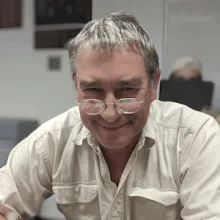
Konrad Zinsmaier
The laboratory studies pathogenic mechanisms of neurodegenerative diseases and molecular mechanisms essential for maintaining synaptic function and plasticity

